We all know that a fresh coat of paint can completely transform a home, but have you ever stopped to consider whether you're buying eco-friendly paints?
Paint is a quick, cost-effective way to breathe new life into your space, but many brands contain chemicals that are harmful to our heath and to the environment.
It’s never been more important to make choices that are kinder to the planet – and, when it comes to paints, there’s no exception. So keep reading to discover everything you need to know about eco-friendly paints, plus our favourite brands.
And for more ideas for improving your home's carbon footprint, check out these 16 ways to make your home eco-friendly.
On a practical note, if you need to update your painting kit, we've tried-and-tested a range of brush sets to find the best paint brushes and put together a buyer's guide of the best painting tools - you're welcome!
What is eco-friendly paint?
There is no single official definition of eco-friendly paint. The general consensus, however, is that eco-friendly paints are those that contain little or none of the chemicals that can harm the environment and our health. This includes solvents, heavy metals and VOCs. The term also refers to paints that are made using environmentally-conscious methods.
When choosing an eco-friendly paint, note that ‘natural’ ingredients, aren't automatically better or safer. Lead, for example, is a 'natural' material, but can have a harmful effect on health and the environment.
What are VOCs?
VOCs, or volatile organic compounds, are carbon-based gasses that are emitted by solids or liquids. These chemicals move from paint into the air and in large quantities can be harmful to the environment and your health, linked to nausea, lethargy and respiratory issues.
In the UK, the permitted amount of VOCs in paint is strictly legislated and it is a legal requirement for paint brands to state the VOC content of their products on the label. If you come across a brand where the VOC content is unavailable, it’s recommended that you avoid using that product.
Is water-based paint more eco-friendly?
Water-based paint is a more eco-friendly choice than other types of paints because it uses water as its primary solvent. This means that it is more biodegradable, odour-free, and produces fewer harmful chemicals. Overall, they have a significantly lower environmental impact than other types of paint.
The best brands for eco-friendly paints
Frenchic
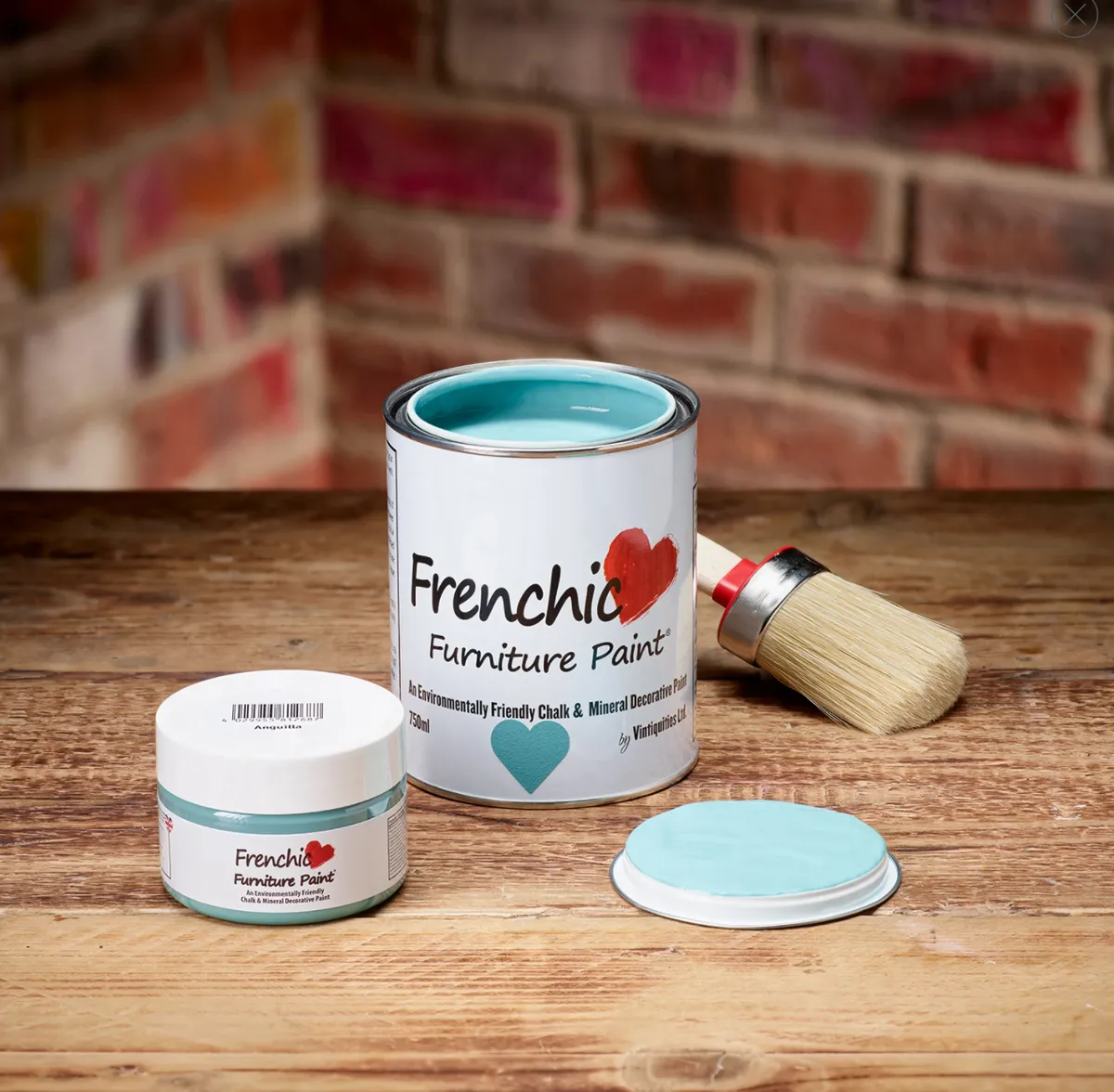
Eco-friendly, non-toxic and available in over 60 colours, Frenchic chalk paint is a firm favourite in the upcycling community thanks to its easy-to-use, self-priming formula and range of on-trend finishes which can be used for everything from sprucing up kitchen cabinets to transforming a UPVC door. The brand boasts upcycling paint, wall paint and paint for outdoor surfaces, as well as finishing coats and crackle-effect glazes.
The water-based paint has minimal VOCs and is EN 71-3 certified, meaning it is safe to use on children’s toys and nursery furniture. All this, plus it’s long-life paint, so you won’t have to keep repainting every few years.
Earthborn Paints

Founded in 2002, Earthborn paints were the first UK brand to receive the EU Ecolabel for Indoor Paints and Varnishes - a label of environmental excellence. Thanks to their use of eco-friendly ingredients, the brand offers two fully breathable paint finishes – Claypaint and Ecopro Silicate Masonry Paint – that make a great planet-friendly option for lime plaster or heritage projects.
The VOC content in Earthborn paints is negligible, and the colours that do contain titanium dioxide - the chemical that makes white paint white – only contain a small, responsibly sourced amount in line with the brand’s ‘strict environmental standards.’
Little Greene

In 2004, Little Greene were one of the first UK paint manufacturers to achieve the European environmental standard BS EN ISO, and their water-based paints carry the industry's highest eco rating.
Little Greene’s water-based paints have virtually zero VOCs and are safe from toxic metals, and their oil-based paints have recently been reformulated using sustainable vegetable oils.
Annie Sloan
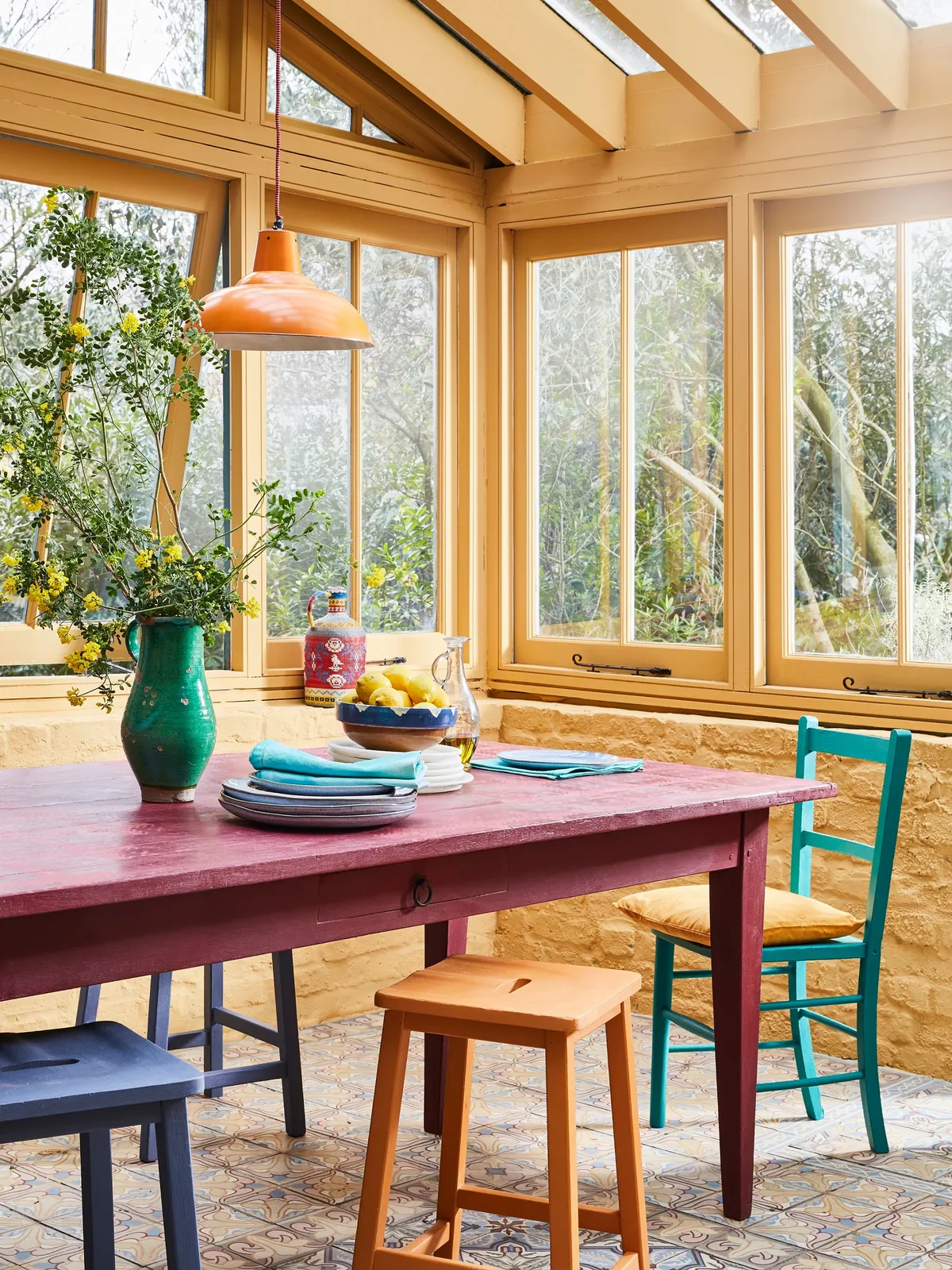
If you’re looking for ethical paint, you can’t get much better than Annie Sloan, the original chalk paint brand. The company is partnered with Oxfam and is an official living wage employer amongst, as well as being environmentally conscious.
Annie Sloan Chalk paints have 0.13% VOCs, are non-toxic, and produce approximately 13.9 sq metres of coverage per litre, meaning that you won’t need huge amounts of paint to achieve sufficient coverage. Annie Sloan’s wall paint is water-based, non-toxic and virtually odour-free.
Lick
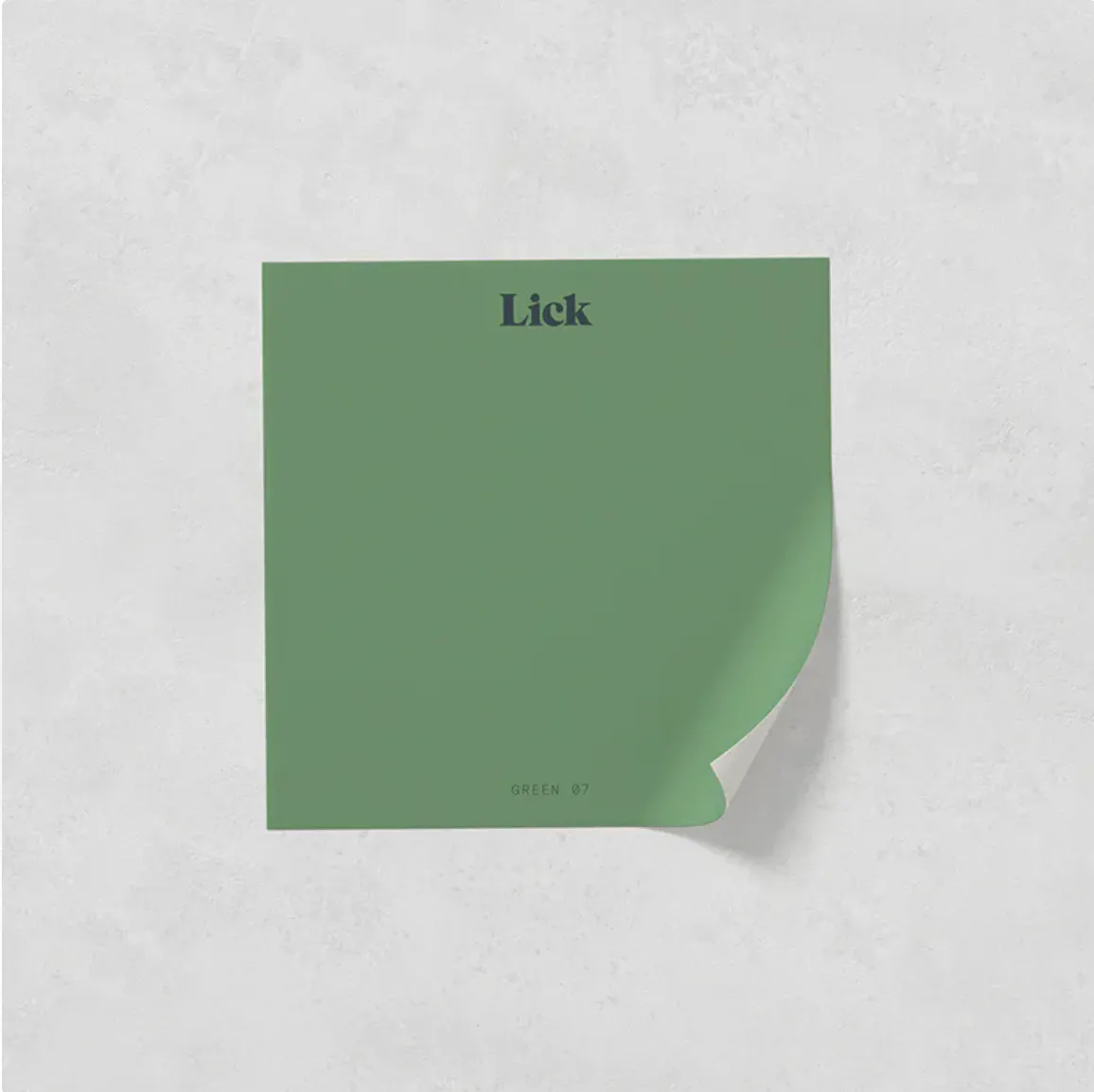
Newcomer Lick has recently rocketed to cult status thanks to its Instagrammable colour range and sleek, laid-back branding. Luckily for us planet-conscious decorators, it’s eco credentials certainly don’t disappoint either. Not only is the product made in small, made-to-order batches to reduce unnecessary waste, they even publish handy blog posts about what to do with your leftover paint.
Plus, Lick's eco-friendly paints have helped remove the equivalent of nearly 51,000 plastic bottles from the sea through its partnership with recycled plastic jewellery company 4ocean. Check out the Lick paint colour palette for 2024 for decorating inspo!
Coat
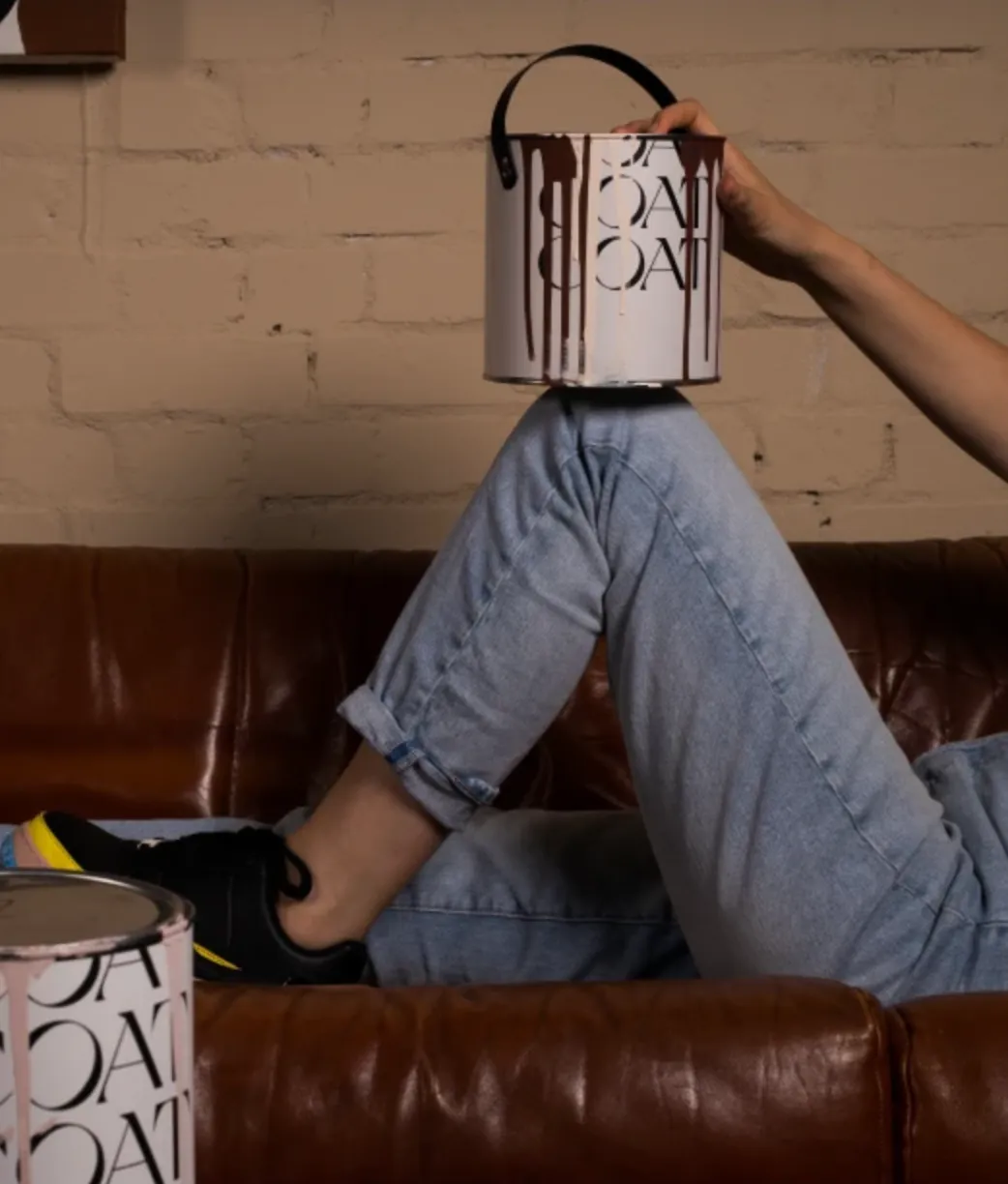
Surrey-based Coat is a brand that’s really doing its bit for the environment. The carbon-positive paint company uses only sustainable, high-grade raw materials to create a water-based paint that’s free from solvents and toxins, and low in VOCs. It's also vegan, for those who want to avoid formulas containing animal byproducts.
Coat’s packaging is made out of sustainable and recyclable materials, and you can recycle it after use. The best part? Coat are partnered with ECO Union to offer completely sustainable painting supplies to accompany your eco paint – they’re made in the UK from sustainably-harvested bamboo handles, recycled metal frames and sugarcane.
Farrow & Ball
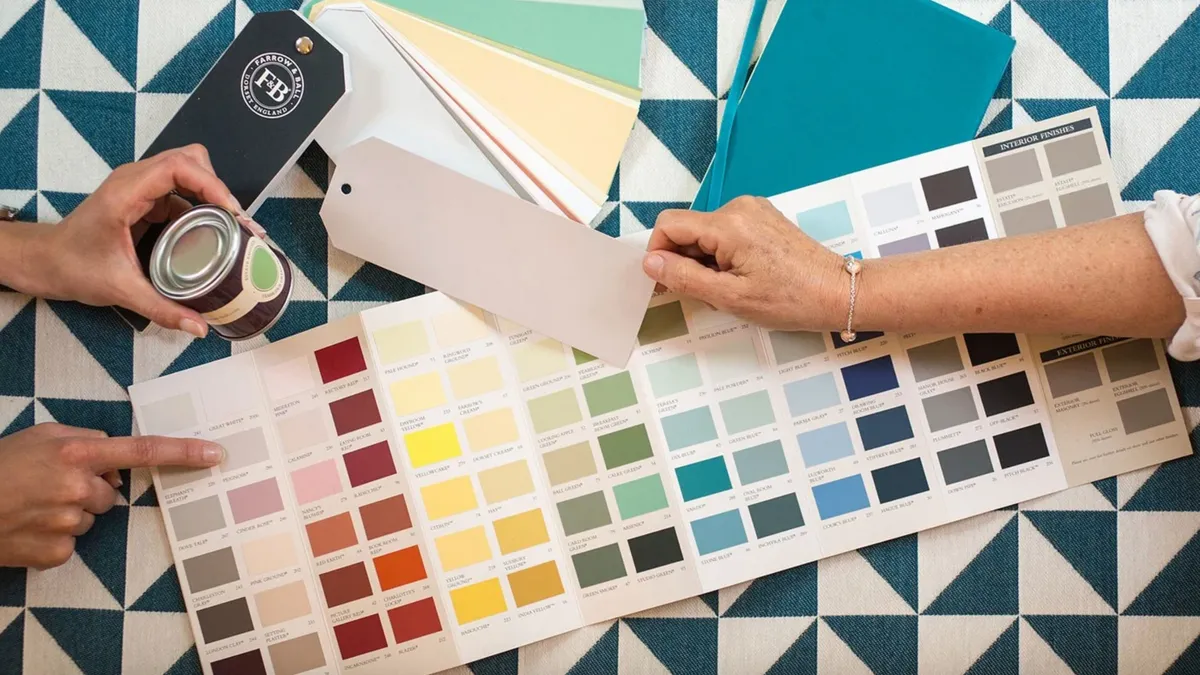
One of the most coveted paint brands on the market, Farrow & Ball are known for their heritage shades and rich pigments. But the brand is also committed to reducing its impact on the earth, and was the first in the industry to move to an entirely water-based range back in 2010.
All Farrow & Ball paints meet toy safety standards, and have low levels of VOCs. Their environmental practices also extend to the way they do business, recycling 100% of the dry waste from their Dorset factory and complying with the Energy Saving Opportunity Scheme (ESOS) across all of their UK sites.
Out of your price range? Try our Farrow & Ball alternatives for great colour dupes!
Lakeland paints
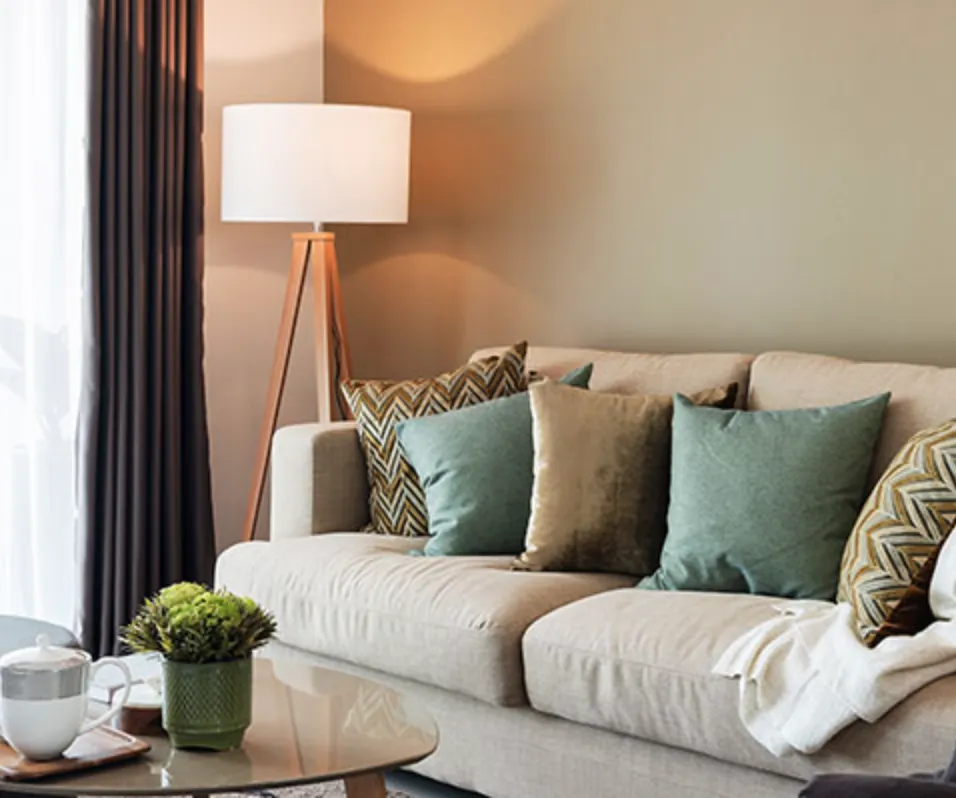
Set up in 1989 as the original non-toxic paint brand, Lakeland Paints's website features a video of their co-founder, Ian West, eating a spoonful of their matt white paint. You probably won't want to replicate that stunt, but it's certainly an eye-catching demonstration of the brand's faith in its eco-friendly paints!
The brand of choice for the likes of the British Museum and the Louvre, Lakeland Paints are free from VOCs, heavy metals and solvents. This makes them not only environmentally-friendly, but a safe option for sufferers of asthma and allergies.
Lakeland’s extensive range includes wall, wood, floor and clay paint, as well as masonry paint, nursery paints, specialised paint and varnish. Each is formulated with three times the standard amount of pigment in their small North Lancashire factory. If you’re not sure about colours and finishes, there’s an option to buy tester pots from their website.
Cornish Milk
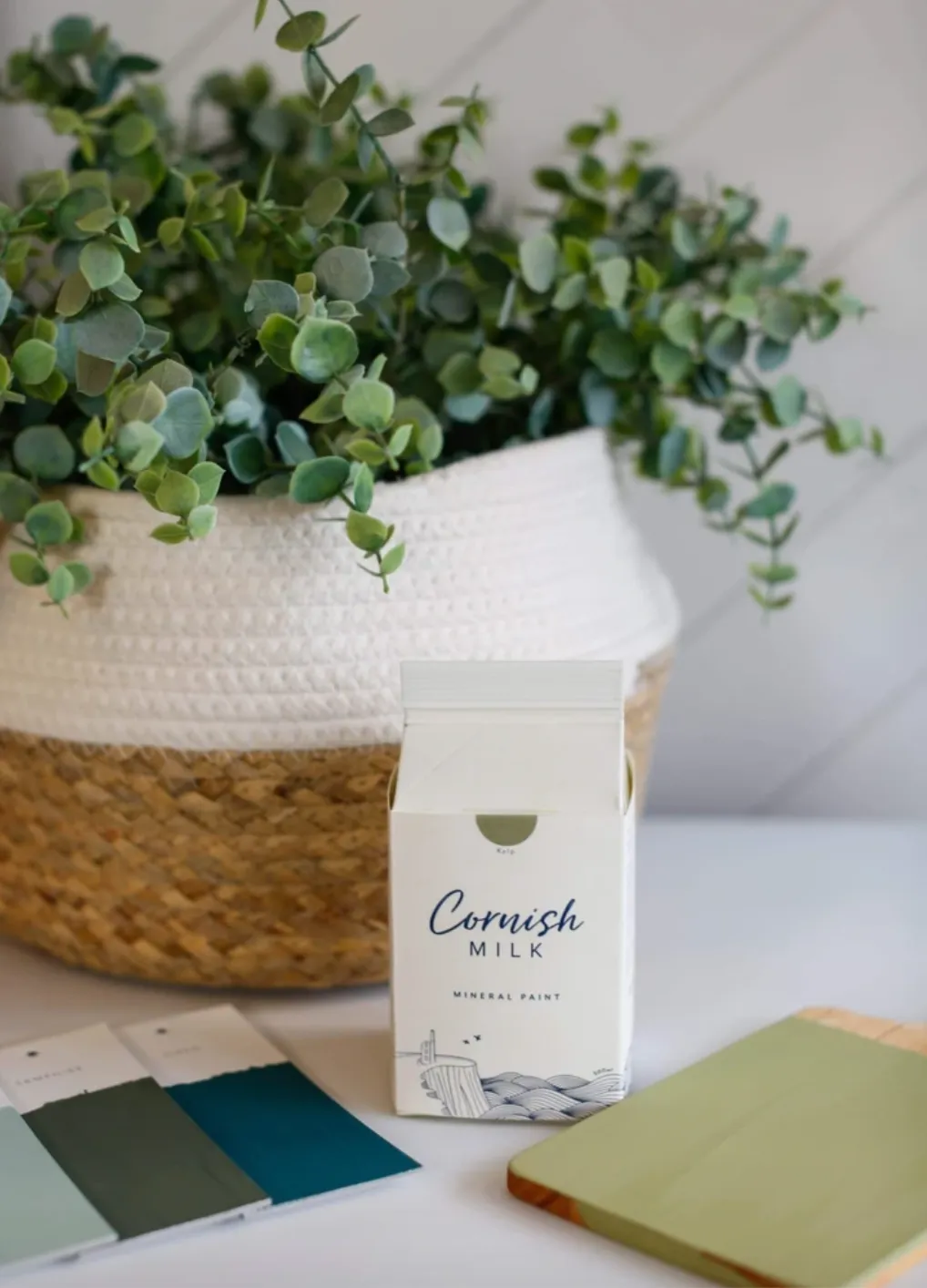
One of the first things you’ll notice about Cornish Milk paint is its 100% biodegradable milk carton packaging, but you’ll be pleased to hear that the paint inside is eco-friendly too.
Handmade in the UK, Cornish Milk paints are vegan-friendly, with no added VOCs and toxins. The paints contain Cornish earth pigment, as well as a durable built in top-coat which eliminates the need to wax or varnish after painting your furniture.
Victory Colours

Victory Colours was set up by founders who had been in the decorating industry for years, and wanted to reduce the environmental damage caused by many mass market paints. Their answer is Victory Colours, with their range of solvent-free, low VOC water-based paint. All their paints are also free of phthalates, formaldehyde, Alkylphenol Ethoxylates (APEO), and heavy metals.
The company makes their paint to order and uses packaging that is either recycled or made from sustainable sources, like bamboo. They also provide hand-painted Eco Sample Panels instead of tester pots, to reduce waste.
Eico paints
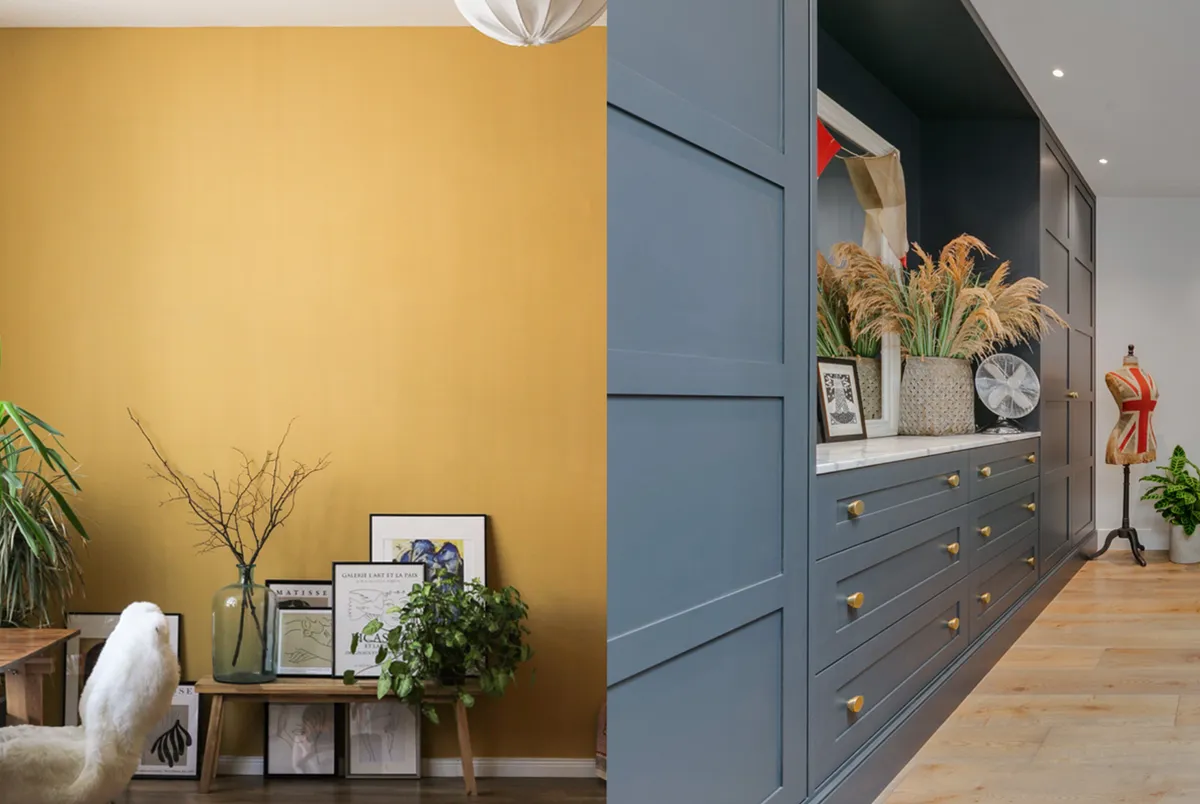
Eico paints are made in manufacturing plants in Iceland and Sweden, which have been specifically designed to ensure minimal environmental impact through the use of 100% hydropower or geothermal energy.
The brand boasts 108 different paint shades, each of which can be used to paint directly over wallpaper.
Edward Bulmer paint
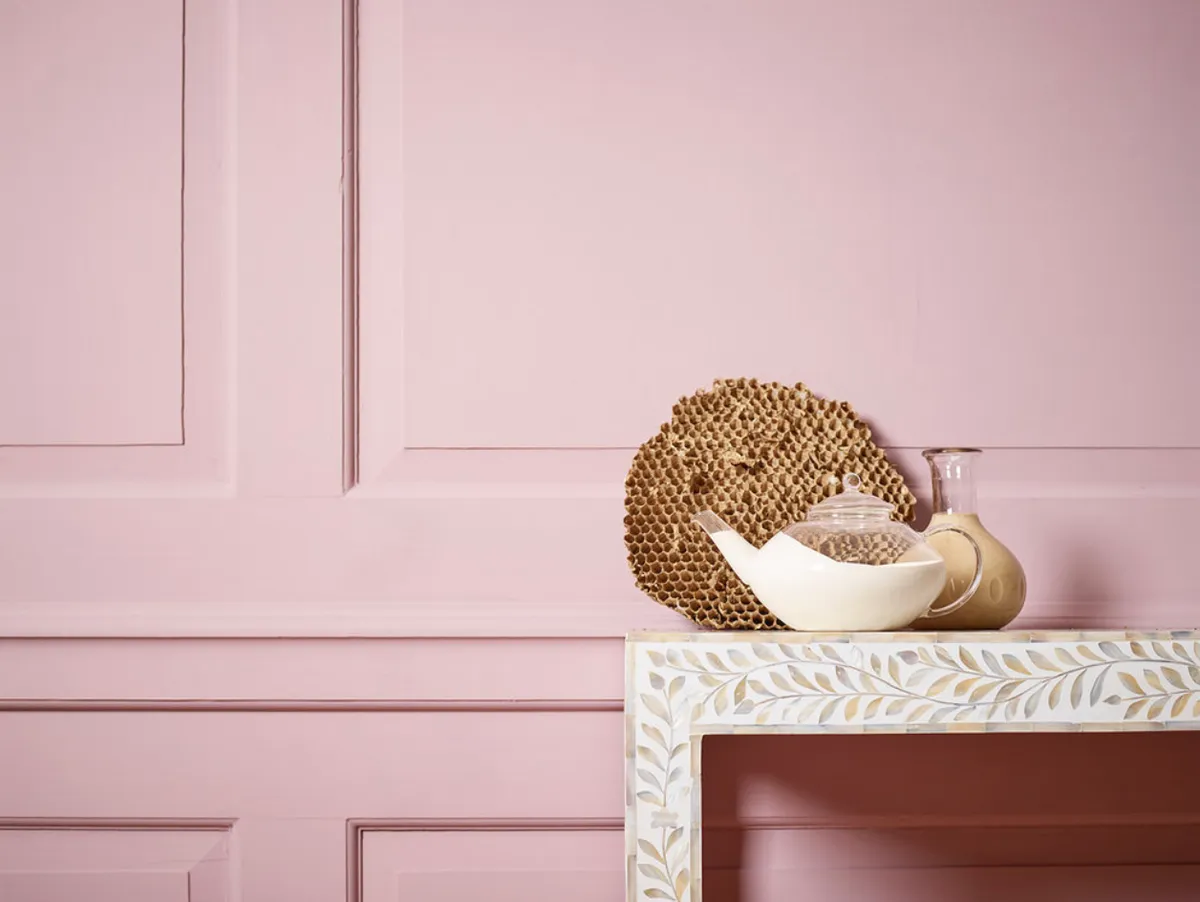
When Edward Bulmer realised that microplastics comprised up to 15% of some paints, he decided to create his own brand. The result is a company that has a completely carbon neutral production process.
As well as only using only natural earth and mineral pigments to colour their plastic free paints, the company uses naturally occurring raw materials of plant origin, like linseed oil, in the place of dangerous solvents, pesticides, herbicides or toxins.
Once you've got your paints, don't let any leftovers go to waste! Check out our sample paint project ideas for what to do with leftover paint.

